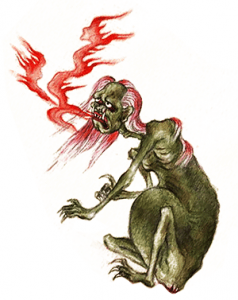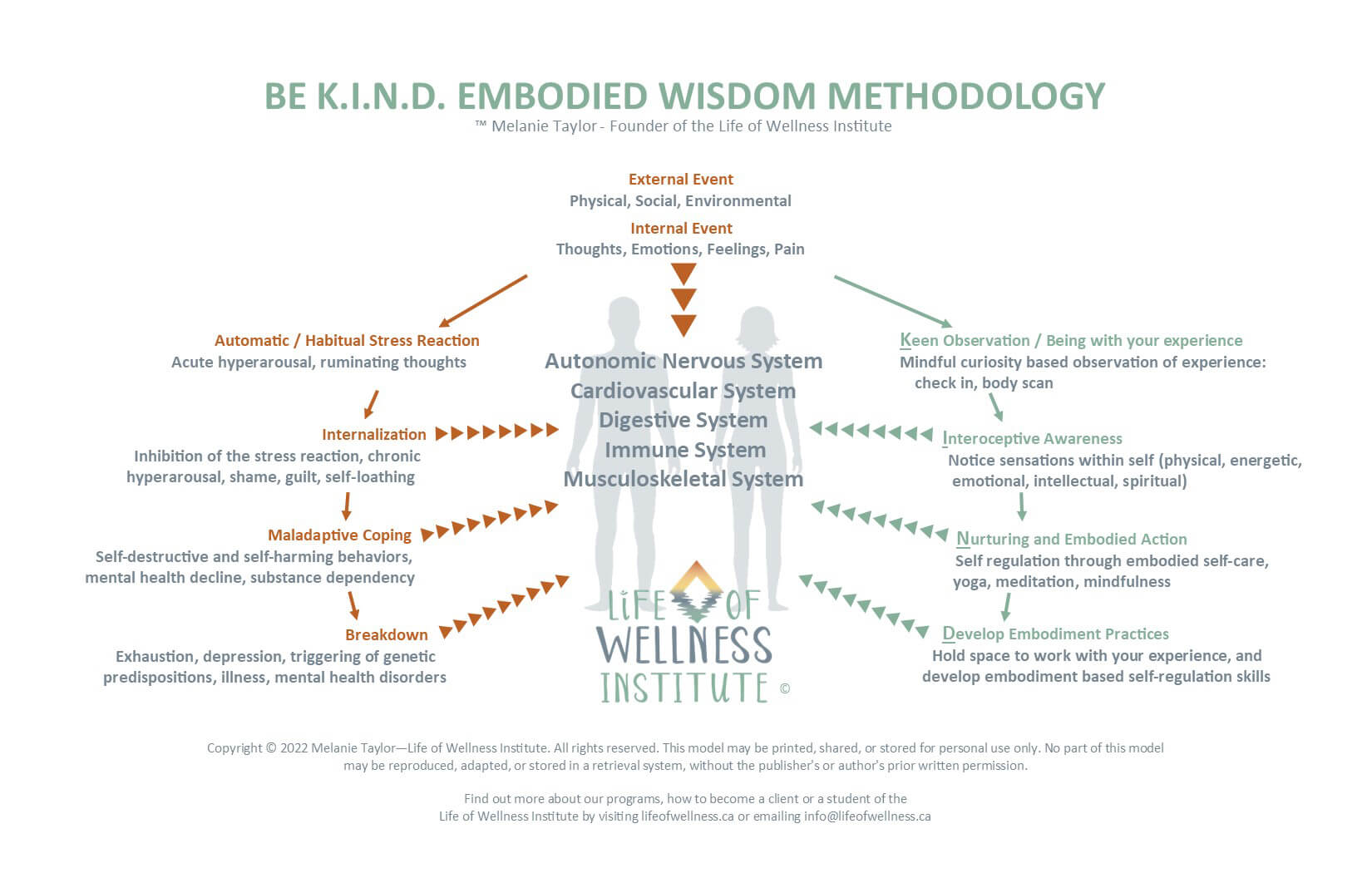
BE K.I.N.D. Embodied Wisdom Methodology (TM)
A Neuroscience-Backed Framework for Trauma-Informed Teaching
From Survival to Embodied Wisdom – Tools for Nervous System Regulation
The Problem with “No Pain, No Gain”
Why Awareness Alone Isn’t Enough
Trauma, chronic stress, and systemic inequities keep us stuck in survival mode: automatic reactions, numbness, or burnout. Traditional wellness advice like “push through” or “just breathe” often ignores this reality, leaving marginalized communities – and their nervous systems – stranded.
“The body speaks clearly to those who listen.”
Pat Ogden
The Hungry Ghost Metaphor
Buddhism’s “hungry ghost” (preta) reflects our cultural obsession with “fixing” ourselves. We chase quick fixes – diets, productivity hacks, perfect poses – while ignoring the root cause: a dysregulated nervous system screaming for safety.

The BE K.I.N.D. Difference
Regulate, Don’t “Heal” – A Trauma-Informed Roadmap
BE K.I.N.D. is a neuroscience-backed methodology for yoga teachers, therapists, and advocates. It blends Viniyoga, Ayurveda, and somatic science to help students:
Break free from habitual survival patterns (overthinking, dissociation, people-pleasing).
Rebuild safety in their bodies through interoception and consent-based practices.
Advocate for systems change – because individual “healing” means little without social justice.*
The BE K.I.N.D. Embodied Wisdom Methodology was created by our Founder, Melanie Taylor. All rights reserved. We encourage you to use this model as a personal guide for forging a new path.
If you wish to reference or share our work, please cite us as the original source and let us know via a social media tag or email.
How BE K.I.N.D. Works
Four Steps to Nervous System Regulation
Keen Observation: “Where do I feel this in my body?” – Body scans, not forced mindfulness.
Interoceptive Awareness: Track sensations (heat, tension, numbness) without judgment.
Nurturing Action: Choose regulation tools in the moment – breathwork, grounding, or stepping away.
Develop Embodied Practices: Build a personalized “menu” of practices for chronic stress, triggers, or burnout.
"Embodiment is being with and working with all the sensations, emotions, and experiences life offers."
Catherine Cook-Cottone
Origin Story – Lived Experience, Not Theory
Born from PTSD, Perfected Through Science
In 2020, amid COVID chaos and my own PTSD diagnosis, I realized that my toolbox of yoga and Ayurveda was failing me. “Awareness” had become a bypass for avoiding pain. BE K.I.N.D. emerged from two revelations:
Trauma lives in the body – sequencing must regulate the nervous system, not just stretch muscles.
Self-compassion is activism – marginalized communities need practices that honor systemic harm, not gaslight them into “positivity.”*
Today, BE K.I.N.D. equips my students at Eat Breathe Thrive and Life of Wellness Institute to teach yoga that’s safe, adaptive, and socially conscious.
“Over-understanding occurs when understanding is an attempt to avoid experiencing feelings or memories.”
Seane Corn
The BE K.I.N.D. Model (Visual Breakdown)

Trauma-Informed Teachers, Not Perfect Gurus
BE K.I.N.D. is designed for yoga professionals who:
Teach in high-stress environments (studios, schools, recovery centers).
Work with marginalized communities (2SLGBTQI+, BIPOC, trauma survivors).
Crave science-backed tools over spiritual bypassing.
"The BE K.I.N.D. Embodied Wisdom Methodology, and our courses, are designed to move from a dependence on awareness, and into self-compassionate actions that develop Embodied Wisdom."
Melanie Taylor
